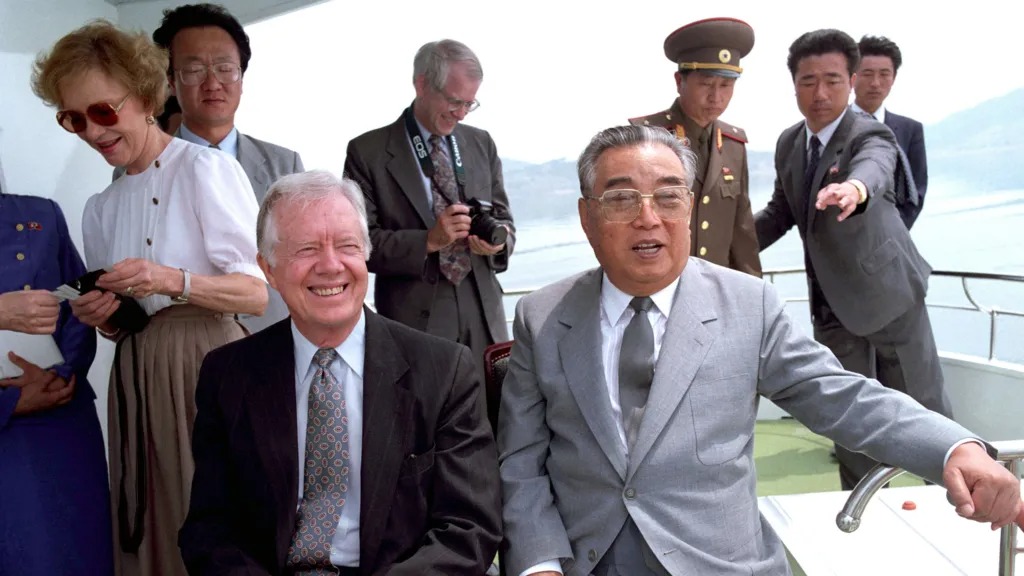
Carter’s North Korea Diplomacy: Averting Nuclear Crisis
In 1994, Jimmy Carter’s bold visit to North Korea marked a historic turning point in US-North Korea relations. As tensions escalated over Pyongyang’s nuclear ambitions, Carter stepped in, demonstrating how diplomacy could avert catastrophe. His direct engagement with North Korean leader Kim Il-sung laid the groundwork for the Agreed Framework, which temporarily halted North Korea’s nuclear program.
How Carter’s Diplomacy Prevented Conflict
The situation in 1994 was dire. With suspicions that North Korea was preparing nuclear weapons, the US considered military action. Carter’s intervention brought both parties back to the negotiation table. His proposal included freezing North Korea’s nuclear activities in exchange for economic aid and energy assistance, preventing what many feared would be a devastating war.
The Legacy of Carter’s North Korea Diplomacy
Carter’s visit set a precedent for direct US-North Korea engagement. While the Agreed Framework eventually broke down, his efforts highlighted the importance of negotiation in resolving global conflicts. His work remains a pivotal example of peaceful conflict resolution.
External Link: Read more about Carter’s Diplomacy on BBC News
Internal Link: Learn about Historic Diplomatic Successes





